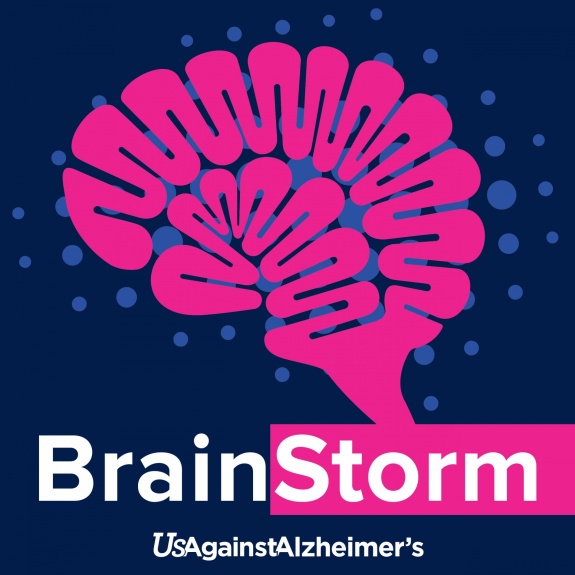Subscribe on your favorite player
Listen on Apple Podcasts Listen on Spotify Listen on Stitcher Listen on Google PodcastsSleep and Alzheimer's - Dr. Jeffrey Iliff

About This Episode
Dr. Jeffrey Iliff spoke with UsAgainstAlzheimer's Co-Founder and Chairman George Vradenburg for our August Alzheimer’s Talks. Dr. Iliff is an Assistant Professor in the Department of Anesthesiology and Perioperative Medicine at Oregon Health & Science University and he was part of a team that discovered a critical brain-cleansing system.
During this discussion he outlined his research on how sleep helps clear waste from the brain and how sleep and neurodegenerative diseases like Alzheimer’s might be connected. We also discussed useful tips that we can all use to improve our sleep and brain health.
CLICK THE PLAY BUTTON AT LEFT TO HEAR THE DISCUSSION.
Key Highlights
We need good sleep to clean out our brains.
While you’re sleeping, your brain is very active, cycling through REM sleep and slow-wave sleep. One of the critical activities during sleep is processing memories – converting short-term memories to long-term memory storage. During slow-wave sleep, the glymphatic system in the brain is also sweeping out the debris that accumulates through the course of the day.
Poor sleeping appears to be linked to Alzheimer’s.
Dr. Iliff says there is a clear association between sleep disruption and the development of Alzheimer’s pathology. Also, this glymphatic system appears to slow with age. In the future, imaging techniques may help scientists measure the cleaning function to better understand how it works and see if it can be modified.
It could be a vicious cycle.
Having Alzheimer’s could disrupt the parts of the brain that control sleep, and lead to poor sleeping cycles. But, poor sleep could prevent brain cleaning and contribute to the development of Alzheimer’s. Scientists need more research to determine which way the association runs, or if it runs both ways.
Tips for better sleep!
Sleep, like cardiovascular health, may be one of the things you can control, to possibly reduce your risk of developing Alzheimer’s. Dr. Iliff shared some recommendations to get quality sleep. Go to bed and wake up at the same time every day, maintain a quiet sleep environment, and “unplug” from screens at least an hour before bed.
Thank you to Dr. Iliff for describing his research and answering questions. You can also read a full transcript of our conversation. Dr. Iliff answered lots of interesting questions, including whether naps count and the impact of sleep medication.
